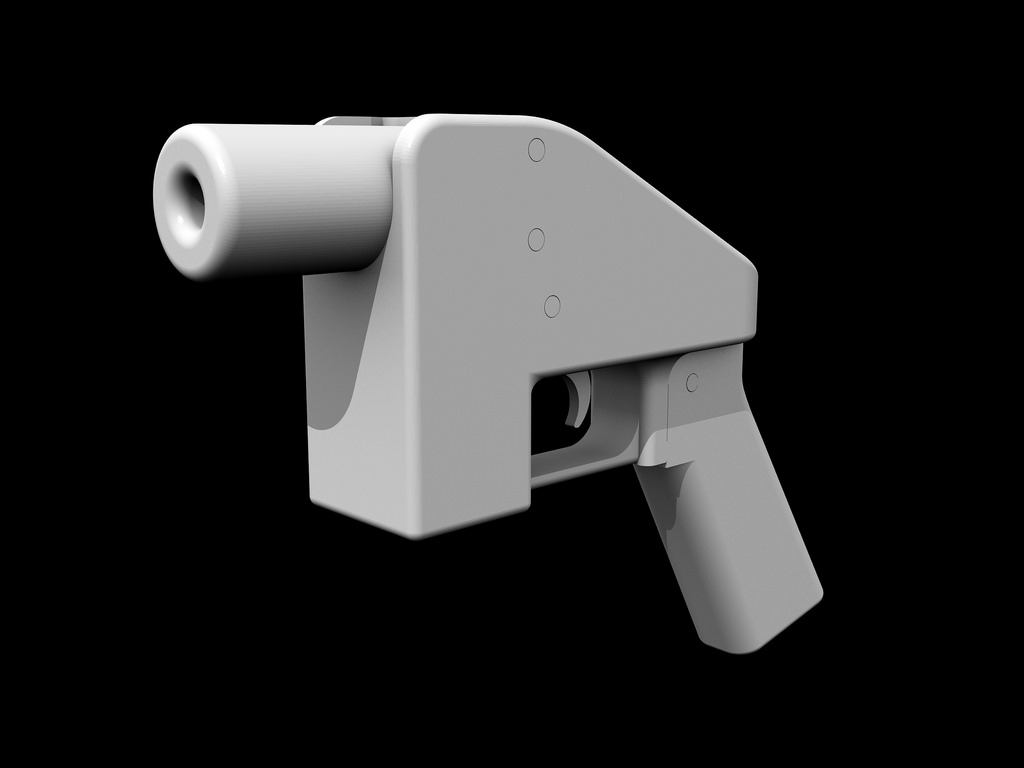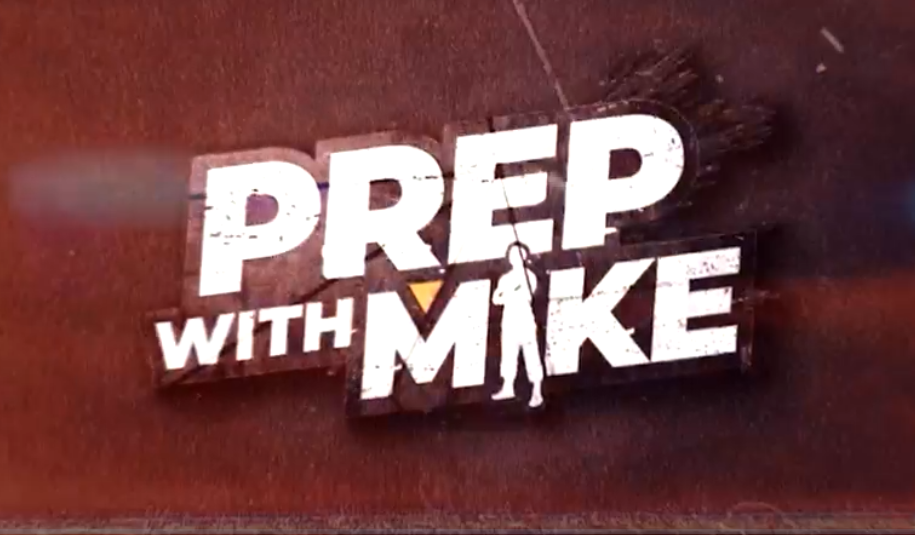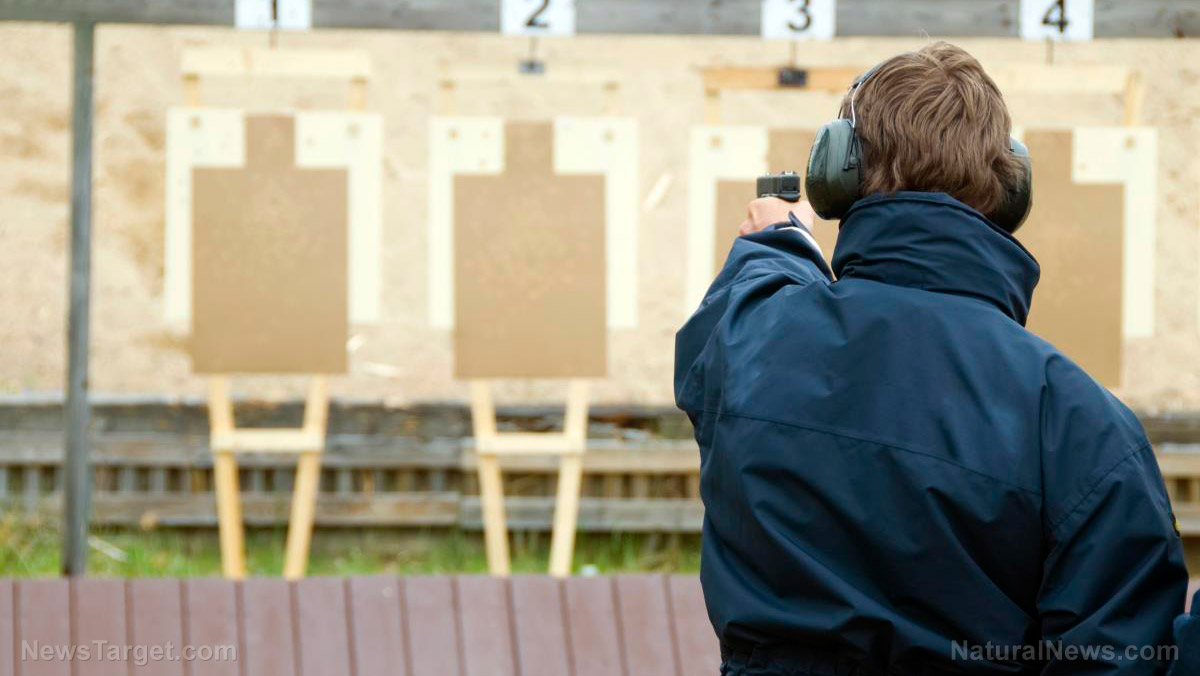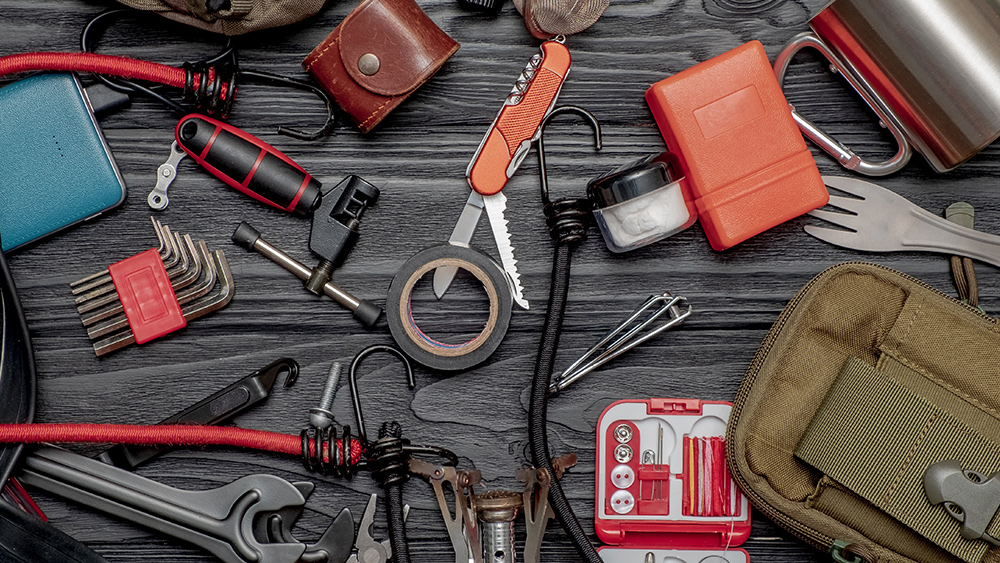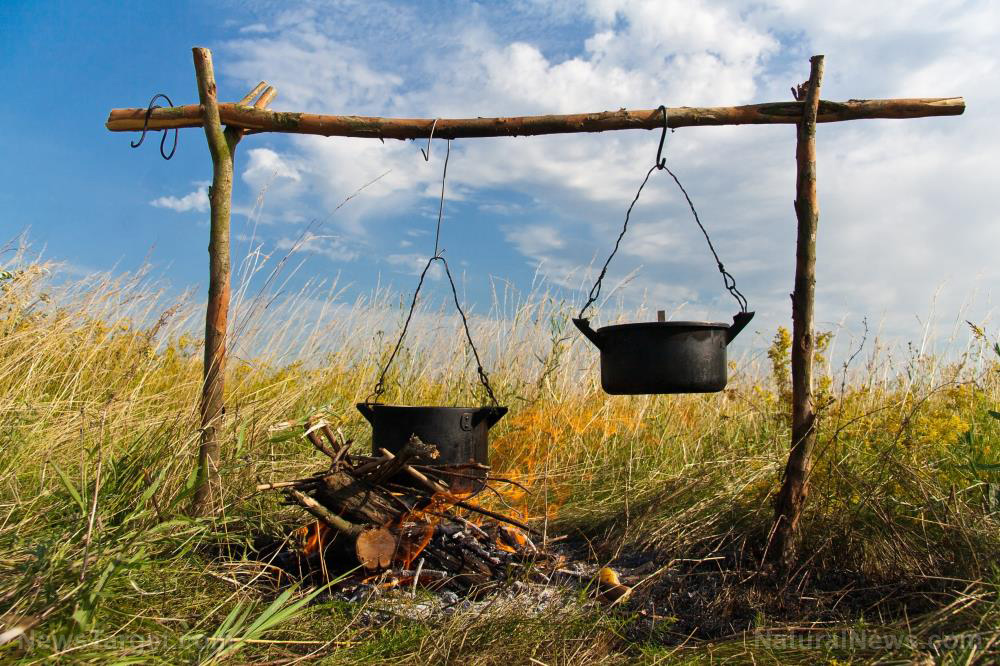Common (and not-so-common) camping and bug out mistakes and how to avoid them
10/11/2022 / By Zoey Sky
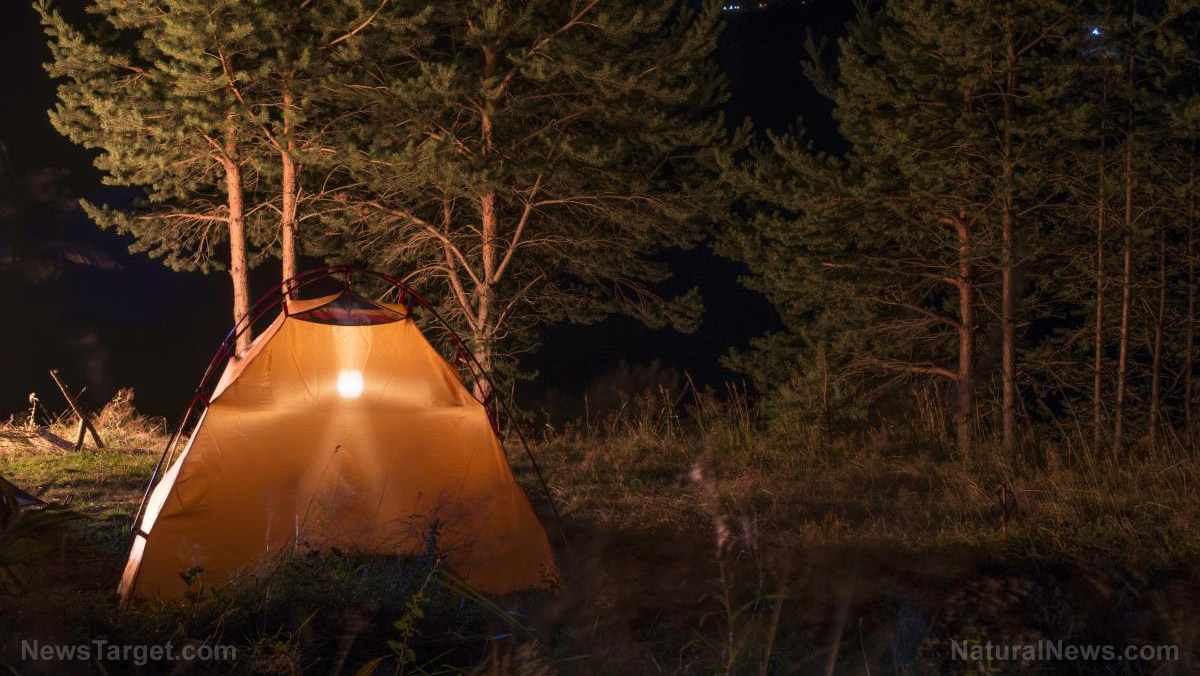
If you’re camping to relax or bugging out after disaster strikes, make sure you’re prepared before heading out so your time in the wilderness is a safe one. (h/t to Survivopedia.com)
Regardless of your reasons for being outdoors or the scenario you are facing, spending time in the wilderness requires preparation. You also need to follow the same rules, such as setting up camp in the best location, gathering firewood to cook and staying warm and being prepared for the changing weather.
Detailed below are some common and uncommon mistakes you may make while camping or bugging out and how to avoid them. (Related: Emergency preparedness: Do you have a tent in your bug-out gear?)
Why you need to check the weather and your destination
Since you are going to spend a lot of time outdoors, you need to check the weather forecast before leaving home or while on the road to your destination.
If you aren’t prepared for harsh weather, your time outdoors will be rather unpleasant. This means before SHTF, you should learn how to build a shelter and prepare for different scenarios like extreme weather changes.
If you are unable to check the weather when you’re on the run or when bugging out, you can make sure you are prepared to face bad weather once you reach your destination.
Study the behavior of birds, cloud movement and wind pattern changes to check for signs indicating the arrival of bad weather. If you notice signs pointing to incoming inclement weather, make sheltering your priority.
Before heading out, let your friends and family know your destination. This ensures that if something happens and you get lost or your return has been delayed, they will know where and when to come looking for you.
Always bring the right gear
Before SHTF, you need to prepare your camping or bug-out gear so you have everything you need to survive once you reach your destination.
There are two major challenges when packing your camping or bug out gear.
First, you might pack improper gear or ignore important items because you didn’t read about them haven’t tried them, or simply forgot to bring those items.
If you’re going camping, you will need a first aid kit or multi-tool. If you’re bugging out, you will need a firestarting kit and a tent or tools for building a shelter.
These items will also prove useful if you are going to spend a lot of time outdoors:
- Axe or survival knife
- Can opener
- Change of clothing
- Cordage/paracord
- Extra socks
- Flashlight and extra batteries
- Portable stove
- Sleeping bag
- Stove fuel
- Toiletry kit
When your survival depends on certain items, double- and triple-check your bag to make sure you have what you need for emergencies.
The second major challenge that people face is their inability to test new gear and fight the overpacking impulse. If you aren’t familiar with the gear in your bag, you might make the mistake of getting cheap and useless items that may fail you when you need them most.
Before you leave your house, check the quality of your tools and learn how to use them properly.
Some experience campers and preppers may also struggle with overpacking. While you need a lot of gear, if you’re bugging out you also need to make sure that you don’t pack more than you need.
You can keep your bag light by bringing multi-use items and packing only what you need. Overpacking may be caused by insecurity and the inability of some people to cope with the bare minimum.
Fortunately, you can resolve this by gaining confidence while experimenting and improvising in the field.
Food storage tips
Food is an important part of your preps, especially if you are going to spend a lot of time outdoors. Food provides you with energy, boosts your morale and keeps your mind sharp.
But food can cause a lot of problems for campers and the most common one is caused by the improper storage of food or its byproducts. If you’re going camping, learn how to properly store and dispose of food or dispose of food scraps and trash so you don’t attract the attention of unwanted guests.
Even if the animals lured into your camp by food are not dangerous, they can still cause a lot of problems if they damage your survival gear to get to the food.
Store all unused food in a sealed container high above the ground to keep most creatures at bay. Seal trash in trash bags and dispose of the bags properly.
Addressing water problems
Like food, water is another primary concern when SHTF. If you are going camping or bugging out for a week or so, it might be wise to make your wilderness campsite a more permanent location.
Having enough water to drink or use for your cooking or hygiene needs can help prevent health issues that may put your life in danger.
If your water supply runs out, think twice before using water from a source like a pond or a clean-looking stream.
Even clear water may be filled with pathogens that are invisible to the naked eye. Since these pathogens often don’t change the color and smell of water, you may be tempted to drink the water because it looks like it’s safe to use.
When packing your supplies, make sure you bring a water filtration device. Alternatively, you can bring the necessary tools so you can at least boil water or filter it before using it.
Boiling and filtering water helps prevent abdominal cramps, diarrhea and vomiting, which can be troublesome or even life-threatening in a survival scenario.
How to stay warm and cozy with a fire
Building and maintaining a fire is a basic outdoor skill that is crucial for both a survival situation and a leisure scenario.
If you’re a camping beginner, remember that a fire will burn as long as it has enough fuel. Do not underestimate how much fuel a fire needs so you can stay warm. A fire will also help deter wild animals from wandering into your campsite.
Get an ample supply of firewood and build the largest supply you can. If you think you already have enough fuel, gather a little more, just in case.
Preventing flooding in your campsite
After a long day of exploring, choose the right camping spot before setting up your tent.
First, survey the land around you. This will help you avoid unforeseen and unexpected floods that will get you soaking wet or sweep away all your gear.
A heavy rainstorm in the wilderness can create a disproportionate amount of runoff that may sweep away your camp. If you’re lucky, you will only have to deal with annoying puddles.
Always check the higher ground around you so that you can set your tent in a place where flash floods won’t become an issue. Check signs of weather patterns and pick a site with less vegetation, which suggests that there’s less water in that area.
Tips for sleeping on the ground
If you have no choice but to sleep on the ground, make sure you at least have ground insulation even if you are traveling light. Without ground insulation, the cold ground can draw away heat from your body and leave you cold and uncomfortable.
Don’t sleep on the tent floor or on a piece or two of clothing. It’s better to raise yourself from the ground by improvising a bed frame from small saplings lashed together.
You also need to know what you need to do if you have to spend time outdoors when the weather is cold. Bring a beanie and wear it during cold nights to help improve your sleep and overall comfort at night.
Avoiding bugs
Pesky bugs are another annoyance you need to prepare for before SHTF. Protect yourself against bug bites by bringing enough insect repellent.
Note that you may need different kinds of bug spray for certain insects since not every bug spray will work for all insects you will encounter.
Even seasoned preppers can make mistakes while bugging out, but the best way to ensure that your time outdoors is safe and comfortable is to learn the necessary survival skills and bring the right gear.
Watch the video below to find out how to build 15 different kinds of shelters with a tarp.
This video is from the SurvivalTV channel on Brighteon.com.
More related stories:
10 Essential outdoor skills that will help you survive when SHTF.
Essential supplies to pack in your first aid kit for a camping trip.
Camping safety tips: 6 Ways to stay cool in summer.
Sources include:
Submit a correction >>
Tagged Under:
bug out, camping, Gear, how-to, off grid, preparedness, prepper, prepping, prepping tips, survival, Survival Tips, survivalist, sustainable living, tents
This article may contain statements that reflect the opinion of the author
RECENT NEWS & ARTICLES
COPYRIGHT © 2018 SURVIVALGEAR.NEWS
All content posted on this site is protected under Free Speech. SurvivalGear.news is not responsible for content written by contributing authors. The information on this site is provided for educational and entertainment purposes only. It is not intended as a substitute for professional advice of any kind. SurvivalGear.news assumes no responsibility for the use or misuse of this material. All trademarks, registered trademarks and service marks mentioned on this site are the property of their respective owners.











